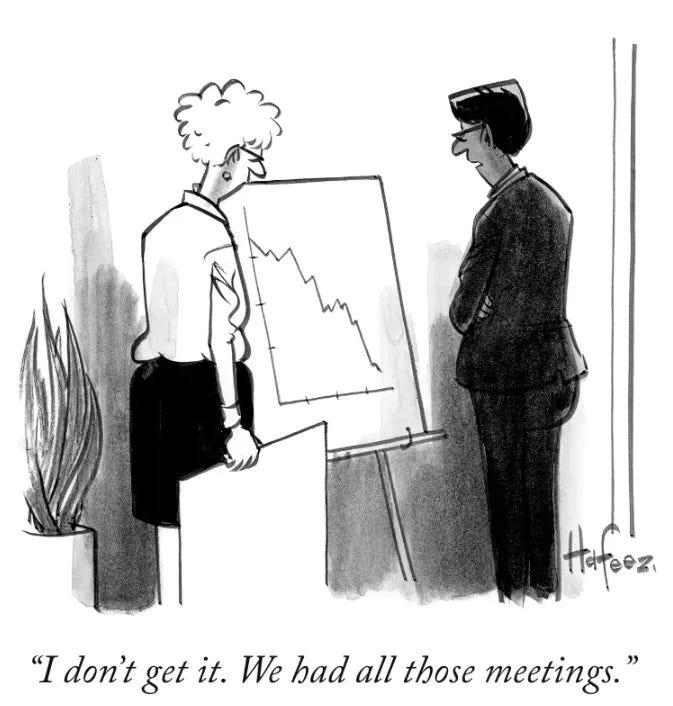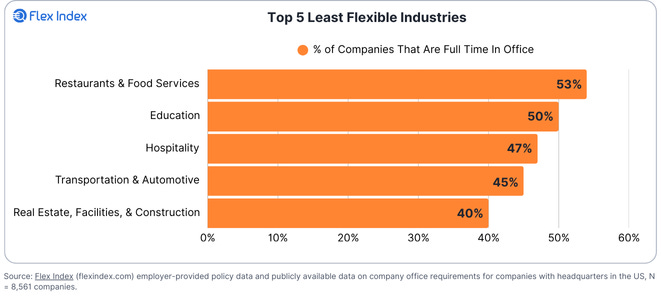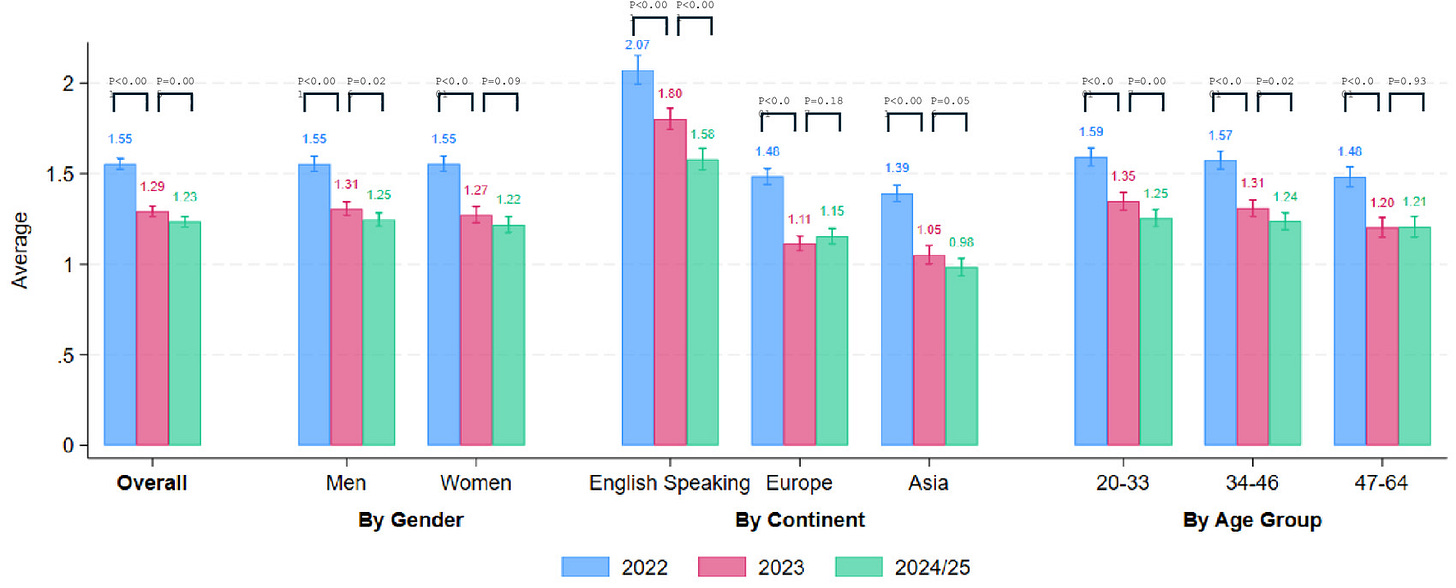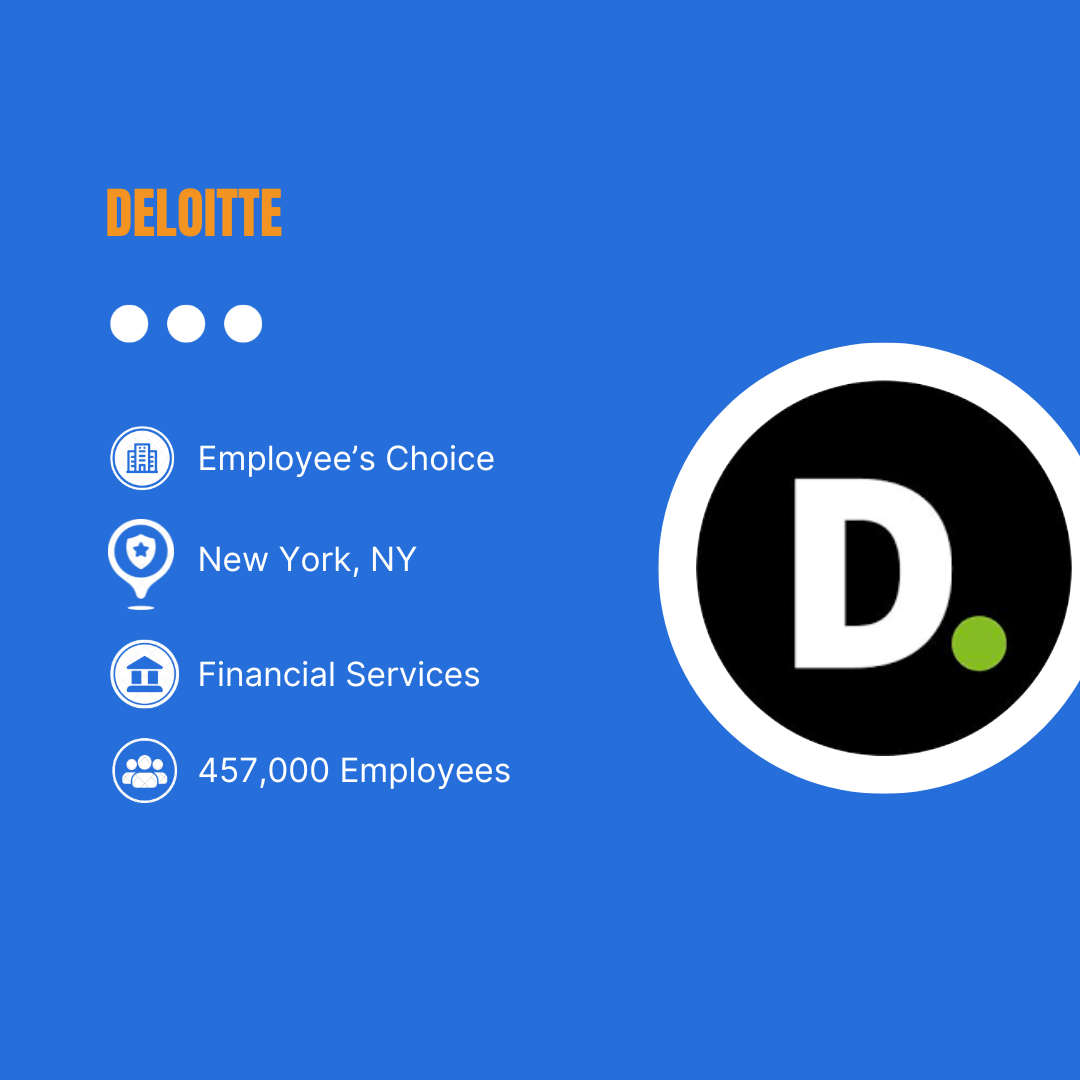3M Calls Workers Back Four Days a Week
Plus, global WFH rates stabilize at one day per week—the "new normal" is here
👋 Happy Tuesday! JPMorgan is opening a bigger Amsterdam office after running out of desks due to its five-day RTO mandate—a problem more companies may face as they ditch flexible work policies while confronting a shortage of real estate to accommodate everyone heading back.
In this week’s edition:
🏢 3M Tightens RTO Policy
📊 Top 5 Least Flexible Industries
🏡 Global WFH Rates Stabilized
Current Subscribers: 10,047
Please forward to colleagues and friends!
ICYMI 📅
Take Five
We're launching a quick survey about meeting effectiveness! Take 5 minutes to share your insights. We’ll share the key findings with all subscribers!
THIS WEEK’S FLEX FOCUS 🔍
3M Tightens RTO Policy to Four Days a Week
Minnesota-based 3M announced that all non-production employees must work in-person at least four days per week starting September 1, marking a significant shift from the company's flexible "Work Your Way" program introduced in 2021.
The policy change affects thousands of employees who previously had the option to work remotely, hybrid, or in-person schedules. The new requirements will not impact distance-exempt employees, and the company noted that implementation dates may vary based on individual schedules and other factors.
3M's leadership cited collaboration and innovation as key drivers behind the decision. "Our ability to engage, collaborate, and innovate is stronger in person," a company spokesperson said, emphasizing the value of face-to-face interaction for demonstrating performance culture and addressing priorities with "speed and urgency."
Senior leadership at 3M has already been working in-person three days a week since last fall. At the same time, other major employers such as General Mills and Minnesota state government have implemented similar RTO mandates in recent months.
FLEX WORK QUICK HITS 💥
Stay ahead of the curve with our curated roundup of the trending flexible work stories making waves right now. Here's what you need to know 👇
Newsweek: Remote job postings grew 8% in Q2 2025 —computer/IT, project management, and sales roles led remote hiring growth.
Forbes: 75% of rural workers age 45+ would take training to qualify for remote work opportunities, but face barriers as employers reduce remote job postings and geographic mobility hits historic lows.
The Economist: Analysis of 900 companies found that full-time office mandates improve "agility" but worsen employee ratings on leadership, supportiveness, work-life balance, and toxicity compared to flexible arrangements.
Yahoo Finance: Capital Economics forecasts Southern cities like Miami and Houston will lead office market recovery with 15% and 11.5% capital growth, respectively, while San Francisco, Chicago, and Los Angeles face continued declines through 2029.
STAT OF THE WEEK 📈
Top 5 Least Flexible Industries
Restaurants & Food Services companies are most likely to require Full Time In Office for corporate employees. Along with Education, they are the only industries where half or more of firms are Full Time in Office.
Not surprisingly, the broader Real Estate industry also makes the top five in requiring Full Time In Office. Importantly, Government just missed moving into that position, largely driven by changes at the Federal level in the US.
FLEXPERT INSIGHTS 🧠
Global WFH Rates Have Stabilized—And That's the New Normal
New research published in the Proceedings of the National Academy of Sciences surveyed 42,938 college-educated workers across 40 countries and confirms that WFH rates have stabilized since 2023. We're now in a "new equilibrium" where remote work accounts for roughly one day per week globally—about 25% of workdays.
The study reveals persistent geographic patterns: English-speaking countries average 1.5-1.9 WFH days per week, many East Asian economies average well below one day, while European and Latin American countries fall in between. These country rankings have remained remarkably consistent year over year, suggesting structural factors—not temporary policies—are driving long-term adoption rates.
COMPANY SPOTLIGHT ✨
Deloitte, founded in 1845, is a multinational professional services network specializing in audit, consulting, financial advisory, risk advisory, tax, and legal services. The company has established its global presence in over 150 countries and territories, including offices in New York, London, Sydney, and Hong Kong.







